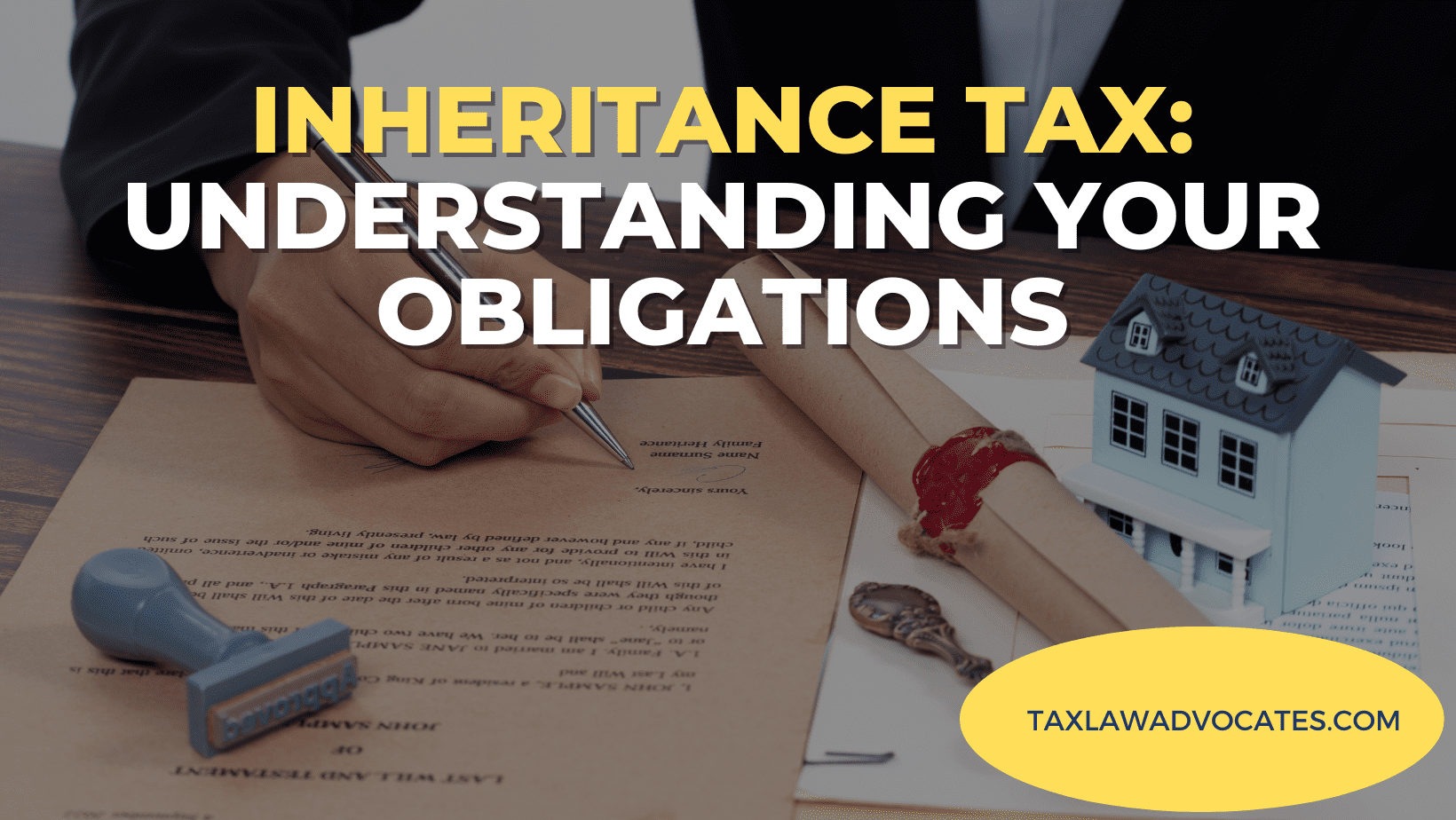Inheritance tax, often referred to as the death tax or federal estate tax, is a significant consideration if you are the beneficiary of a deceased person’s estate. Contrary to popular belief, not all inherited money is tax-free. Understanding when and how inheritance taxes apply can help you navigate the complexities of inheriting property or assets. In this blog, we will debunk common myths related to inheritance taxes and provide a clear overview of your obligations.
What is Inheritance Tax?
Inheritance tax is a levy on the transfer of assets or property from a deceased person to their beneficiaries. It encompasses everything the deceased owned or had an interest in at the time of their death. This tax is distinct from the income tax return that an estate might file to cover income earned during the tax year. For federal inheritance tax, the estate is responsible for paying the tax if its value exceeds $12,920,000 for individuals who passed away in 2023.
Misconception: All Inherited Money is Tax-Free
One of the most pervasive myths is that all inherited money is tax-free. While it is true that many inheritances do not result in immediate taxes for the beneficiary, there are scenarios where taxes apply. For instance, if the inherited property generates income, such as interest, dividends, or rents, this income is taxable. Additionally, if you sell inherited property at a gain, you must report this gain on your federal income tax return.
Understanding Federal and State Inheritance Taxes
Federal Estate Tax
The federal estate tax applies to the transfer of the entire estate if it exceeds the exemption limit, which is $12,920,000 for 2023. The estate itself is responsible for paying this tax before distributing the remaining assets to the beneficiaries.
State Inheritance Tax
In addition to federal taxes, some states impose their own inheritance or estate taxes. Currently, eleven states and Washington D.C. have estate taxes, and six states have inheritance taxes. These states include:
Estate Taxes:
– Connecticut
– Hawaii
– Illinois
– Maine
– Maryland
– Massachusetts
– Minnesota
– New York
– Oregon
– Rhode Island
– Vermont
– Washington
– Washington D.C.
Inheritance Taxes:
– Iowa
– Kentucky
– Maryland
– Nebraska
– New Jersey
– Pennsylvania
It is crucial to check the specific laws in your state to determine your obligations.
Reporting Inheritance to the IRS
Income in Respect of a Decedent
“Income in respect of a decedent” refers to income that the deceased earned but did not receive before death. This income is taxable to the beneficiary in the same manner as it would have been to the deceased. Examples include interest, dividends, and proceeds from installment sales.
Selling Inherited Property
When you sell inherited property, the tax implications depend on the property’s value at the time of the original owner’s death. The property’s basis is typically its fair market value at the date of death. If you sell the property for more than this value, you must report the gain as income. Here’s how it works:
Scenario 1: Inheriting and Selling a Home
Imagine you inherit a home valued at $575,000 at the time of the original owner’s death. If you sell this home for $1,000,000, you incur a gain of $425,000. If you lived in the home and meet certain criteria, you might qualify for a home sale exclusion of $250,000 (or $500,000 if married filing jointly), reducing the taxable gain.
Scenario 2: Quick Sale of Inherited Property
If you inherit a property valued at $1,000,000 and sell it three months later for $1,005,000, you incur a $5,000 gain. This gain is taxed as a long-term capital gain due to the inherited nature of the property, even though you held it for only three months.
Property Passed Through a Trust
Trusts are another common vehicle for transferring inherited property. When you receive distributions from a trust’s principal, these are generally not taxable. However, if you receive income distributions from the trust, this income is taxable. You will receive a Schedule K-1 (Form 1041) to report this income on your tax return.
Debunking Inheritance Tax Myths
Myth 1: Beneficiaries Always Pay Inheritance Tax
In reality, it is the estate that pays federal estate tax, not the individual beneficiaries. Only in states with inheritance taxes do beneficiaries potentially face taxes, and even then, exemptions and rates vary based on the beneficiary’s relationship to the deceased.
Myth 2: Inheritance Tax Applies to All Estates
Federal estate tax only applies to estates exceeding the exemption limit ($12,920,000 in 2023). Most estates do not reach this threshold and therefore do not owe federal estate tax. However, state-level estate and inheritance taxes can have lower thresholds, so it is essential to understand your state’s laws.
Myth 3: Inherited Property is Always Taxed When Sold
Inherited property is taxed based on the gain realized from its fair market value at the date of death. If you sell inherited property at a price close to this value, your taxable gain may be minimal or nonexistent.
How Tax Law Advocates Can Help
Navigating inheritance tax laws can be complex and overwhelming. Tax Law Advocates specialize in providing personalized tax relief services, including assistance with inheritance tax issues. Our team can help you understand your obligations, file necessary tax forms, and ensure compliance with federal and state tax laws.
If you have questions about inheritance tax or need assistance with any tax-related issues, contact Tax Law Advocates today at 855-612-7777 or visit our website. Let us help you achieve peace of mind and ensure you meet all your tax obligations.






